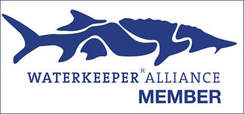Volunteer Checklist
Register on-line prior to the event. The parent/guardian of each minor (under the age of 18) must register on-line and view/accept the Waiver of Liability Form. Families may register by using one registration form and listing the names of all family members in the comments section. Girl Scout, Boy Scout, American Heritage Girls, 4-H and other groups must register participants individually so that a parent/guardian can view/accept the Waiver of Liability form.
SAFETY FIRST!!
After your cleanup, weigh or estimate the weight of total trash collected.
Report trash collected to your Team Captain.
Recycle any clean #1/#2 plastic.
SAFETY FIRST!!
- Bring a reusable water bottle, trash bags, gloves and dress for the weather.
- Riverbanks can be slippery and unstable. Watch your footing. Supervise children closely.
- Do not allow children to cleanup near a low-head dam.
- Do not trespass on private property.
- When near a road, wear orange vests, work in groups, face on-coming traffic.
- Watch for snakes and poison ivy. Check yourself for ticks afterwards.
After your cleanup, weigh or estimate the weight of total trash collected.
Report trash collected to your Team Captain.
Recycle any clean #1/#2 plastic.
FAQ
Q: When does the cleanup start?
The cleanup competition starts at midnight on March 1, 2018. Your team may choose one or multiple cleanup date(s) during the months of March and April. Any trash collected by any team member in the Pearl River watershed during the months of March and April can count towards total team trash numbers.
Q: How will you inform volunteers of any changes to the event?
Visit the Pearl Riverkeeper Facebook page for the most up-to-date information. The event will be held rain or shine. Some locations may be impacted by river level.
Q: What supplies should I bring?
Volunteers should bring reusable water bottles, trash bags and work gloves. Dress for the weather, wear sturdy shoes, and bring sunscreen/hat/insect repellent as desired.
Q: Are kayaks/SUPs available for participants?
No, you may use your own watercraft as desired.
Q: What should I do if I find hazardous waste?
Stay away from 55-gallon drums or five-gallon buckets with intact lids. Report their location to your Site Leader. Do not touch any hazardous waste and notify your Site Leader if you find items such as: car batteries, tires, syringes and needles, medical waste, and full bottles of disinfectant, chlorine bleach, household cleaners, herbicides, insecticides or motor oil.
Q: What are the potential hazards of cleaning up river debris?
River debris can have sharp edges so we recommend wearing sturdy gloves or using grabbers for pickup. Avoid river water if you have open wounds or a compromised immune system.
The cleanup competition starts at midnight on March 1, 2018. Your team may choose one or multiple cleanup date(s) during the months of March and April. Any trash collected by any team member in the Pearl River watershed during the months of March and April can count towards total team trash numbers.
Q: How will you inform volunteers of any changes to the event?
Visit the Pearl Riverkeeper Facebook page for the most up-to-date information. The event will be held rain or shine. Some locations may be impacted by river level.
Q: What supplies should I bring?
Volunteers should bring reusable water bottles, trash bags and work gloves. Dress for the weather, wear sturdy shoes, and bring sunscreen/hat/insect repellent as desired.
Q: Are kayaks/SUPs available for participants?
No, you may use your own watercraft as desired.
Q: What should I do if I find hazardous waste?
Stay away from 55-gallon drums or five-gallon buckets with intact lids. Report their location to your Site Leader. Do not touch any hazardous waste and notify your Site Leader if you find items such as: car batteries, tires, syringes and needles, medical waste, and full bottles of disinfectant, chlorine bleach, household cleaners, herbicides, insecticides or motor oil.
Q: What are the potential hazards of cleaning up river debris?
River debris can have sharp edges so we recommend wearing sturdy gloves or using grabbers for pickup. Avoid river water if you have open wounds or a compromised immune system.

